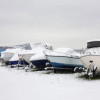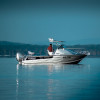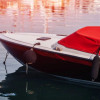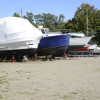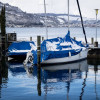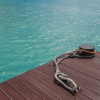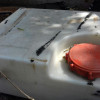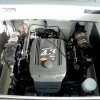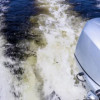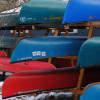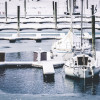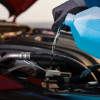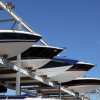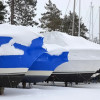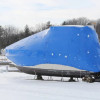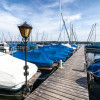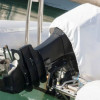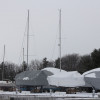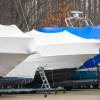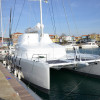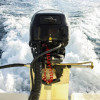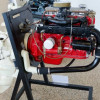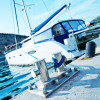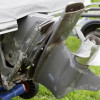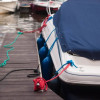Winterize Your Boat
Winterizing your boat consists of preparing your boat, covering it, and storing it. Here, you'll learn what to consider and how to do it properly.
Do you need to winterize?
Not everyone needs to
Not every boat needs to be winterized. Only boats that will get below freezing temperatures will need to be winterized. But if your boat gets freezing cold, you'll need to take some steps. Even when in dry storage.
But if your boat does need to be winterized, and you neglect it, all sorts of damage will occur.
When to winterize
Best before temperatures drop below 60°F
If you're in a climate where it drops below freezing point (or comes close), you need to winterize your boat.
Ideally, you're already done once temperatures drop below 60°F. Usually this is around October.
It depends on your motor type, the climate you live in, and the way you store your boat. But even if you store your boat out of the water, make sure to winterize it before the first freeze.
How to winterize your boat
You can follow a simple checklist
If you've never winterized a boat before, you can follow a simple checklist to get it done in roughly one afternoon (depends on the boat of course).
There are four steps to winterizing a boat:
- Preparing your boat
- Preparing the motor
- Covering your boat
- Storing your boat
Winterizing your boat motor
Your motor is cheap and easy to do yourself
You'll need to drain the fluids from the motor, and besides that, you don't need advanced skills.
If you've never drained fluids from a motor before: it's pretty simple. You can watch a YouTube video and learn it while you do it.
Cost to winterize
You can save $100s if you do it yourself
Performing an oil change and anti-freeze change on your outboard motor is simple once you've done it once. Doing it yourself will save you on average $100-$300 per year and it only costs an hour or two.
Preparing your boat for storage yourself will save you another $400-$600 per year.
Cost of pro winterization
If you let a pro winterize your boat, you'll pay based on the length of your boat and the type of boat.
- small boats cost on average $1,020 to $1,540
- medium boats cost on average $1,270 to $1,770
- larger boats (over 30ft) cost on average $1,525 to $2,025
More on cost to winterize
Boat antifreeze
You can save money by using RV antifreeze
Antifreeze will protect your boat motor and other parts during winter and prevent it from freezing.
If your motor freezes, the engine block may crack, specifically all the little oil channels that run through it. That's why part of winterization is running fresh antifreeze through your motor.
Parts you'll need to drain and fill with antifreeze are:
- boat motor
- bilge pump
- other parts that have fluids running through them
There is, however, a difference between coolant and regular antifreeze.
Storing your boat
Yes, you can store your boat in your driveway
It's now time to decide where you're going to store your boat. How many storage options you have depends on your budget.
You can store your boat:
- in water
- in dry storage
- in your garage
But if you have a smaller boat, your garage is by far the best and cheapest way to store it.
Covering your boat
There are multiple ways to cover your boat
Covering your boat will protect it from the elements when in winter storage. There are a couple of ways to cover it, all of which have a different price tag give different results.
The most expensive one is shrink wrapping, which incidentally also protects the best.
The second most expensive one is using a custom cover, which protects pretty well because of a good fit.
The cheapest options is using a tarp or creating an A-frame yourself. This gives less protection, however.
Shrink wrap
The toughest and most expensive cover for winter
Shrink wrap probably offers the best protection on the market but it's also the most expensive.
Usually you'll have to pay a pro to do it. It can create ventilation problems and it creates a lot of waste.
On the flipside, it's very stable in the elements, and is by far the best protection available. And there are actually ways to reuse shrink wrapping, or at least recycle it.
De-winterizing
You can follow a simple checklist
Now that the weather is looking up it's finally time to de-winterize your boat. It's sort of winterizing in reverse — although some specific steps are different.
To make sure you don't forget anything (and drink antifreeze instead of water next time you're out for a sail), we recommend following a checklist.
More on de-winterizing
Do you need to winterize?
Not everyone needs to
Not every boat needs to be winterized. Only boats that will get below freezing temperatures will need to be winterized. But if your boat gets freezing cold, you'll need to take some steps. Even when in dry storage.
But if your boat does need to be winterized, and you neglect it, all sorts of damage will occur.
When to winterize
Best before temperatures drop below 60°F
If you're in a climate where it drops below freezing point (or comes close), you need to winterize your boat.
Ideally, you're already done once temperatures drop below 60°F. Usually this is around October.
It depends on your motor type, the climate you live in, and the way you store your boat. But even if you store your boat out of the water, make sure to winterize it before the first freeze.
How to winterize your boat
You can follow a simple checklist
If you've never winterized a boat before, you can follow a simple checklist to get it done in roughly one afternoon (depends on the boat of course).
There are four steps to winterizing a boat:
- Preparing your boat
- Preparing the motor
- Covering your boat
- Storing your boat
Winterizing your boat motor
Your motor is cheap and easy to do yourself
You'll need to drain the fluids from the motor, and besides that, you don't need advanced skills.
If you've never drained fluids from a motor before: it's pretty simple. You can watch a YouTube video and learn it while you do it.
Cost to winterize
You can save $100s if you do it yourself
Performing an oil change and anti-freeze change on your outboard motor is simple once you've done it once. Doing it yourself will save you on average $100-$300 per year and it only costs an hour or two.
Preparing your boat for storage yourself will save you another $400-$600 per year.
Cost of pro winterization
If you let a pro winterize your boat, you'll pay based on the length of your boat and the type of boat.
- small boats cost on average $1,020 to $1,540
- medium boats cost on average $1,270 to $1,770
- larger boats (over 30ft) cost on average $1,525 to $2,025
More on cost to winterize
Boat antifreeze
You can save money by using RV antifreeze
Antifreeze will protect your boat motor and other parts during winter and prevent it from freezing.
If your motor freezes, the engine block may crack, specifically all the little oil channels that run through it. That's why part of winterization is running fresh antifreeze through your motor.
Parts you'll need to drain and fill with antifreeze are:
- boat motor
- bilge pump
- other parts that have fluids running through them
There is, however, a difference between coolant and regular antifreeze.
Storing your boat
Yes, you can store your boat in your driveway
It's now time to decide where you're going to store your boat. How many storage options you have depends on your budget.
You can store your boat:
- in water
- in dry storage
- in your garage
But if you have a smaller boat, your garage is by far the best and cheapest way to store it.
Covering your boat
There are multiple ways to cover your boat
Covering your boat will protect it from the elements when in winter storage. There are a couple of ways to cover it, all of which have a different price tag give different results.
The most expensive one is shrink wrapping, which incidentally also protects the best.
The second most expensive one is using a custom cover, which protects pretty well because of a good fit.
The cheapest options is using a tarp or creating an A-frame yourself. This gives less protection, however.
Shrink wrap
The toughest and most expensive cover for winter
Shrink wrap probably offers the best protection on the market but it's also the most expensive.
Usually you'll have to pay a pro to do it. It can create ventilation problems and it creates a lot of waste.
On the flipside, it's very stable in the elements, and is by far the best protection available. And there are actually ways to reuse shrink wrapping, or at least recycle it.
De-winterizing
You can follow a simple checklist
Now that the weather is looking up it's finally time to de-winterize your boat. It's sort of winterizing in reverse — although some specific steps are different.
To make sure you don't forget anything (and drink antifreeze instead of water next time you're out for a sail), we recommend following a checklist.
